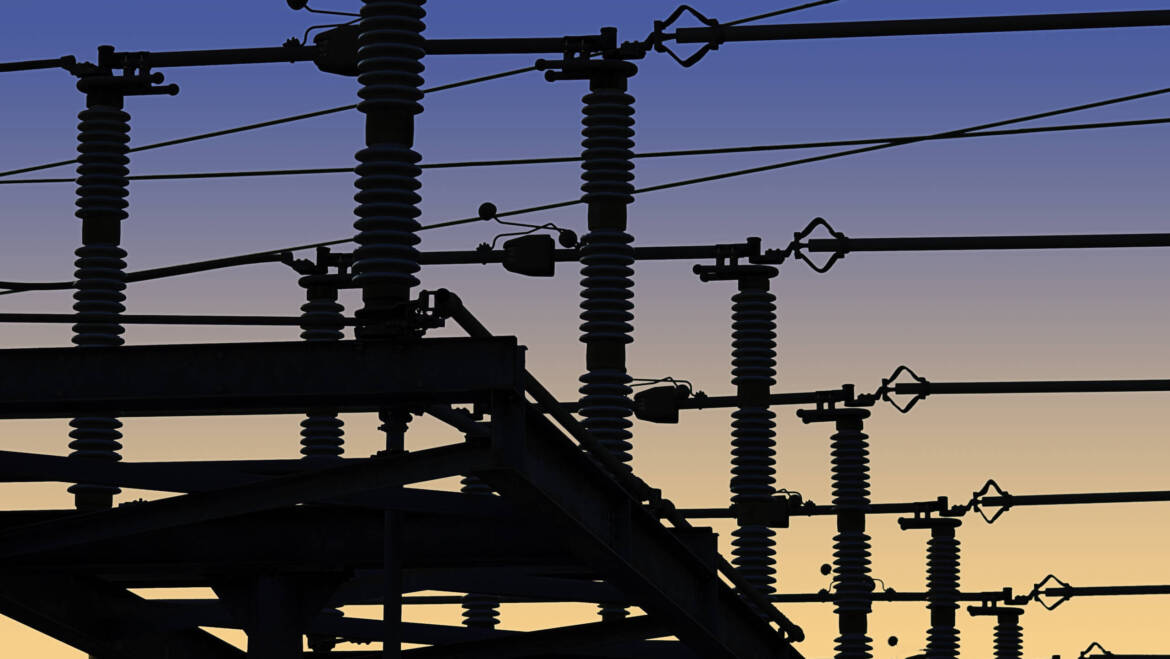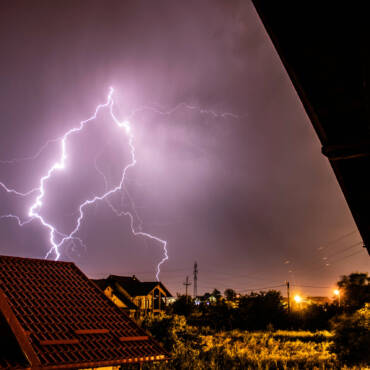The advantages of purchasing a whole house backup generator over a portable generator outweigh the cost difference for an overwhelming majority of homeowners today. In the event of a power outage, these units automatically provide electricity to a larger number of circuits, which makes them 100-percent reliable.
A whole house backup generator is a generator that can power all your home’s circuits at once if the electricity goes out. This includes the lighting circuit, appliances circuit, and your outlets circuit.
In fact, the enclosure and design of a whole house backup generator is tough, durable, and long-lasting. The quality-coated outer shell stands out in all weather conditions. Your backup generator will start quickly and easily with a flexible fuel line connector. Also, maintenance is pretty straightforward for most owners, with many generator versions having a convenient pressure-lubricated engine.
How it All Works: The Whole House Backup Generator
An electrical connection is made between the whole house backup generator and your home’s electrical system. Your generator kicks into action when the power goes out, sending a signal to a sensor that detects the loss of power.
When the generator produces electricity, it distributes that power appropriately to the electrical system in your home. After which, your generator for the entire house will run itself until the main power is restored.
Every generator system needs a switch to turn on the unit, just like you need on a light bulb in your house. Your standby system activates when it detects a power failure. It starts the generator and disconnects the electricity from the line. This energizes the panel in your home with generator power.
Kilowatt Hours and Your Whole House Backup Generator
Different appliances and lighting fixtures throughout your home consume varying amounts of electricity, which has implications for any whole house backup generator that you’re considering. Refrigerators and dryers consume about 500 and 600 kilowatt hours (Kw-hours), respectively, per year. On the other end of the scale, washing machines consume approximately 400 Kw-hours, while televisions consume about 200 Kw-hours a year. Computers are in the 100 Kw range.
You can narrow down your backup generator cost if you know how much Kw-hours are consumed by different appliances in your home. By multiplying an appliance’s wattage by its hours of use, you can calculate its Kw-hour consumption. One hour using one kilowatt of power is equivalent to 1 kilowatt of energy — a measurement of electricity consumption widely used in the United States.
By analyzing your home’s appliances, lights, and square footage, a generator installation company can determine what size of whole house backup generator you need.
Size of Your Whole House Backup Generator
Whether they each have a whole house backup generator or not, U.S. households use about 900 Kw-hours per month of electricity. Although households use electricity differently based on factors such as size, location and energy efficiency, there is a wide range of electricity usage among households.
Small households in warm climates may use as little as 500 Kw-hour per month, while large households in cold climates may consume as much as 2,000 Kw-hour each month. Putting aside the idea of a generator for your entire house for just one minute, it’s important to realize that a variety of factors affect electricity consumption, including:
- An energy efficient design. A home’s energy efficiency can also affect electricity usage. Energy-efficient homes use less electricity to power the same appliances and lights.
- Geography and location. Climate can also affect electricity usage. Households in warm climates typically rely on air conditioning. On the other hand, households in cold climates typically rely on heating. Both make purchasing a whole house backup generator a no-brainer for some households.
- Your household The electricity consumption of larger households — both house size and the amount of individuals living there — is higher than that of smaller households. In addition to having more appliances, these homes also have more people to power.
Backup Generator Maintenance: Straightforward and Understandable
Owners of a whole house backup generator should know how to properly maintain their new investment. Depending on the type of unit you purchase and install, maintenance will vary. In most cases, however, you should take the following steps:
- A qualified technician should service the backup generator
- You must change the oil and filters regularly. This equates to every 250 to 400 hours of operation or once a year.
- Keeping an eye out for any signs of damage on the generator is important. You should have your generator repaired or serviced by a qualified technician if you notice any damage.
- It’s essential you check the fuel level regularly. Check and top off the fuel level as needed.
- Keeping the air filter clean on a regular basis is crucial. If you use the generator in dusty conditions, clean the air filter every month.
Maintaining your whole house backup generator ensures it operates properly during a power outage and stays in good working order. In addition to adhering to the above advice, you should also follow these guidelines:
- Maintain and operate your generator for the entire house according to the instructions provided by the manufacturer. This makes the generator safer and more reliable.
- Experts recommend you store your backup generator in a dry and well-ventilated area. By doing this you can prevent corrosion and other damages.
- It’s important to keep the generator clean. Dust and debris can cause overheating.
- Be careful not to overload your whole house backup generator. Only power circuits the generator is designed to power.
Your generator will last longer if you follow these tips.
Today’s Significant Rise in Power Outages
During the last decade, the United States has experienced a major increase in electricity demand, leading to a rise in whole house backup generator purchases. That’s because recent years have also seen an increase in power outages.
- In addition to natural calamities, transmission line failures, distribution line failures, and equipment faults at power plants, power outages are frequently caused by repairs and maintenance work. Power and voltage fluctuations can significantly damage electrical equipment and machines.
- Equipment failures in the entire national infrastructure — from power production to transmission and distribution — can cause power outages that last from a few hours to several days depending on the severity of the failure. The cost of outages across the nation is between $18 and 33 billion a year.
- A total of 3,500 outages occurred in 2015. These lasted an average of 49 minutes according to the American Society of Civil Engineers. During 2016, power interruptions averaged 1.3 for utility customers, with blackouts lasting more than four hours on average. This is where a backup generator can help significantly for any homeowner.
- In addition to lowering industrial output, power outages also lead to revenue losses for businesses. As a result, this causes inconveniences, malfunctioning, and unproductive downtime in the residential, commercial, government, and other sectors of the economy. Power outages are driving consumer demand within the whole house backup generator marketplace higher over the long run, making this retail market a necessity for many homeowners.
- Across the United States, a continual increase in power outages is expected. This increase will drive up the demand for whole house backup generators in the long run.
The appropriate generator for your entire house will protect your home against power outages of all kinds. The next blackout won’t make you feel vulnerable — you can be prepared.
Danley 911 Home Services Electrical
At Danley 911 Home Services Electrical, we assist you throughout the entire process — from answering questions you may have about whole house backup generator models to helping you prepare for the backup generator installation process, obtaining permits, going through inspections, and much more. We help you optimize and fine-tune your situation so you get the most out of your investment, as well as determine your correct generator size.


